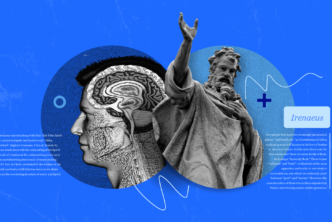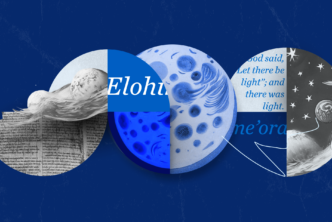This week, in remembrance of his death nearly one year ago, Lexham Press has been honoring the life and work of Larry Hurtado. An accomplished scholar and professor, Dr. Hurtado was the author of many books and articles, notably Honoring the Son (Lexham Press) and Destroyer of the Gods. On the Lexham Press blog, his colleagues remember his important contributions in textual criticism, christology, and Markan studies.
First, Chris Tilling focused on the area Hurtado was perhaps most known for: christology.
“Lord Jesus Christ demonstrated Hurtado at his finest. He wrote extensively, carefully and with a full command of the scholarship, and we will return to this book below. Agree or disagree with his conclusions, his work was a must-read, a mountain range over which one had to climb. To ignore Hurtado would have been like ignoring the works of Martin Luther in an account of “justification.”
In the world of early Christology, Hurtado’s authority was stamped by two major contributions: One God, One Lord, and the aforementioned Lord Jesus Christ. But he was a prolific author. In addition to these, he also made important contributions in discussions about early Christology in two more monographs, namely At the Origins of Christian Worship and How on Earth Did Jesus Become a God? Toward the end of his work on the question of Christology, he also penned God in New Testament Theology, drawing out in more detail what was already in nuce in his earlier works, and a useful summary of some of his key contributions can be found in Honoring the Son. What is more, he published numerous important essays, all of which were must-reads for those engaging questions about the identity of Jesus for the first Christians. Particularly helpful, to my mind, were “What Do We Mean by ‘First Century Jewish Monotheism’?” (1993), “First-Century Jewish Monotheism” (1998), “Pre-70 C.E. Jewish Opposition to Christ-Devotion” (1999), and “The Binitarian Shape of Early Christian Worship” (1999), but others could be mentioned. I read them all, of course. As a result, Hurtado profoundly shaped my thinking, as well as that of most scholars engaged in discussions about early Christology. In what ways? Well, here are four key ways Hurtado left a legacy in the scholarship of early Christology.”
Continue reading “Christology and Larry Hurtado’s Legacy.”
Next, Holly J. Carry covered Hurtado’s contributions to Markan studies.
“In thinking about Hurtado’s contributions to the study of the first gospel, a Markan image might prove useful. Distinctive to Mark’s Gospel is a literary and theological feature known as intercalation, what Markan scholars have often lovingly called “a Markan sandwich.” Such a sandwich involves the beginning of one story, an interruption of that story with another (often with additional or different characters, a new setting, and an increasingly dramatic situation), then a return to the original. The first story and its resolution form the “bread” of the sandwich, while the center story constitutes the meat. When this phenomenon is present, it becomes overwhelmingly clear that the center story—the interrupter, so to speak—is the most important. There is no sandwich without the middle, and the middle illuminates the meaning of the whole. In a series that honors Larry Hurtado’s life work, I find this image also fitting with regard to his scholarly interests. While text criticism was his first passion and foray into scholarship, and his groundbreaking work on early Christian worship was the major focus of his final years of study, it was his work in Mark that seems to have held it all together.”
Continue reading “Larry Hurtado’s Contributions to Markan Scholarship.”
Finally, Tommy Wasserman revealed Hurtado’s often overlooked work in textual criticism.
“Many years ago, when Larry Hurtado had been invited to my alma mater, Lund University, to speak on early Christian worship, I mentioned to some of my colleagues that I knew Larry Hurtado from my field, New Testament textual criticism. “What?” they replied. “Is he working in textual criticism? We didn’t know that.”
Hurtado’s many publications in New Testament textual criticism are probably not as widely known as those in other fields like Christology and Markan studies. The reason for this is not a difference in quality, but probably one in popularity, although the field is currently growing fast, so this may be changing.
In my opinion, Hurtado, through his scholarship and activity has contributed not only to the general interest in the field; he surely practiced what he preached. At the same time, however, there was a certain focus in his scholarship on the early text of the New Testament, corresponding to his interest in the earliest Christian artifacts, to the devotion of Jesus in earliest Christianity, and to the (presumably) earliest canonical Gospel.”
Continue reading “How on Earth did Larry Hurtado Become a Text-Critic?”




